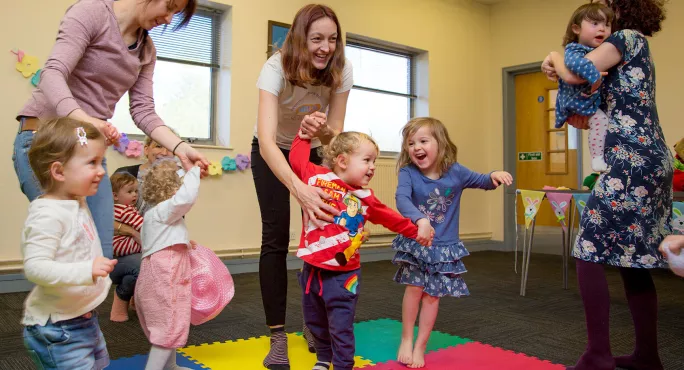Changing the story on child poverty in the North East

In late January, a new analysis by the Joseph Rowntree Foundation revealed every local authority in the North East of England had a child poverty rate higher than the UK average in 2020-21.
This means at least nine children in every classroom live below the poverty line. That’s a hard reality to bear.
Right now, schools in the North East are experiencing a perfect storm of stubbornly high poverty rates and deepening hardship, alongside challenges with young people’s physical and mental health, rising special educational needs and disabilities needs, school attendance and behaviour.
These challenges cannot be solved by schools alone - they have to be tackled at scale and with external support. This is what we at the North of Tyne Combined Authority (NTCA) - a partnership of three local authorities across the North East - have been working on since spring 2022.
While there is a long way to go, we believe the impact of this work could offer inspiration for other regions facing similar challenges.
Tackling the issue head on
Fundamentally, families are struggling to make ends meet. So, how can you put money in their pockets?
One initiative instigated by the NTCA has been to provide 45 schools across the North East with access to specialist welfare and benefit advisers that can come into school communities and offer practical advice to families, with the schools sign-posting their availability to families.
They do this in a variety of ways, from drop-in sessions in the school, chatting with families at parents’ evening or sporting events, and hosting appointments offering benefit and debt advice, to training for school staff and more.
Recent impact data shows that, in just five school terms, this project has led to more than £1 million in financial gains for families in need.
While there were initial concerns over capacity and potential stigma, schools have seen the service welcomed by families and the multi-channel advice approach has meant they are supported in a way that suits them.
What’s more, school staff also speak of feeling reassured they have access to a trusted and reliable port-of-call when they see families in hardship, or if they need support themselves.
Building a social safety net
As part of our commitment to supporting and empowering local solutions to local needs, we run school grant programmes, which since 2022 have seen 30 schools receive funding for pioneering projects that seek to tackle inequalities facing their children.
For example, a school in Northumberland used grant funding to create a community hub right on the school site by developing a derelict old caretaker’s building into a space where families can come and meet, learn new skills and engage with the school.
Other schools have used funding to run practical family learning classes, create story centres with regular parent and community events, or host “stay and play” sessions for young families to strengthen children’s start in Reception.
Unlocking unique barriers
Building on work in North Tyneside, the NTCA has worked with a regional charity in the area called Children North East to run audits to help schools understand in detail the socioeconomic challenges of the school day in their setting.
This works by having a third party come into the school and chat with children, staff, governors and parents to help identify areas where schools can work to improve children’s experiences.
For example, one school realised from the feedback that many children had not been to a library since before the pandemic. So it used an NTCA grant to turn a 1950s caravan, affectionately named Barbara, into a school library.
Another school realised they could do more to support its children’s social, emotional and mental health needs, and so is now running an “into the forest” project, where forest-school leaders nurture learner-led exploration and discovery in a specially constructed yurt on site.
The yurt is used for mental health intervention sessions, as well as for hosting coffee mornings, parental workshops around mental health, mindfulness classes and more.
While the complexities of poverty are far-reaching and every region will have its own challenges, we have seen how working together at scale to combine expertise, resources and funding can have a big impact.
There is still a long way to go on our journey, but we will continue collaborating and are happy to speak with anyone who would like to know more. After all, everyone has a part to play in ensuring that child poverty and its resulting inequalities are not inevitable.
Joanna Unthank leads the Child Poverty Prevention Programme at the North of Tyne Combined Authority
For the latest education news and analysis delivered directly to your inbox every weekday morning, sign up to the Tes Daily newsletter
You need a Tes subscription to read this article
Subscribe now to read this article and get other subscriber-only content:
- Unlimited access to all Tes magazine content
- Exclusive subscriber-only stories
- Award-winning email newsletters
Already a subscriber? Log in
You need a subscription to read this article
Subscribe now to read this article and get other subscriber-only content, including:
- Unlimited access to all Tes magazine content
- Exclusive subscriber-only stories
- Award-winning email newsletters



